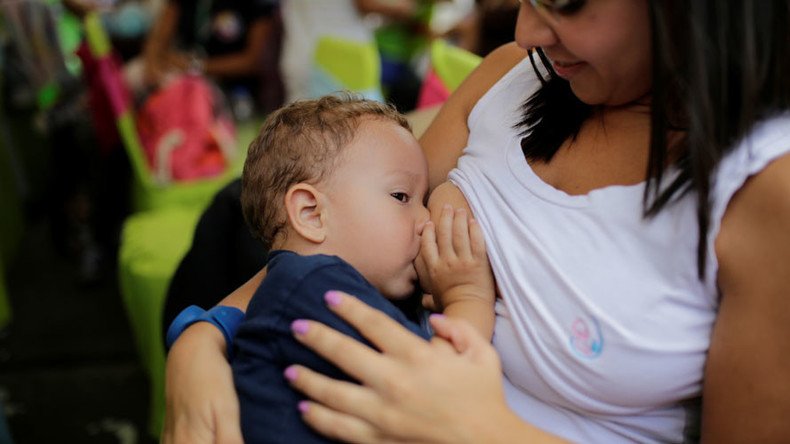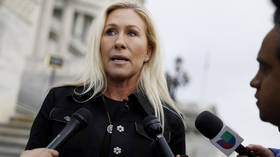British society blamed for world’s lowest breastfeeding rate

Societal pressure to look good and go for a night out in the UK has resulted in the world’s lowest breastfeeding rate, according to a public health expert.
Professor Amy Brown from Swansea University said new British mums are shamed into continuing with the lives they had before giving birth and that breastfeeding can become “overwhelming,” reports the Telegraph.
Editorial - introducing our breastfeeding Series https://t.co/UkhGtp1ydchttps://t.co/LU0WTs2G0U#LancetBFpic.twitter.com/K4LxaVNkeg
— The Lancet (@TheLancet) January 29, 2016
The academic is now calling for a change in public attitudes towards breastfeeding in public, highlighting how the natural act is still seen as taboo by some Brits.
“Is the reason for the low figures because of physical problems? No,” Brown said. “There are only two percent of women in the UK who are unable to breastfeed because of a physical problem or because of medication that they are on.”
@LBC It's inevitable that when women are under such pressure to get back to work, they're unlikely to be #breastfeeding past 12 months
— Lucy Tonge (@lucyisabella_) September 9, 2016
Only one out of 200 British women, just 0.5 percent, are still breastfeeding up to 12 months after becoming mothers. That puts them just ahead of Saudi Arabia and Denmark among countries that largely reject mother's milk.
In contrast, 23 percent of German ‘mutters,’ 27 percent of American moms, and a whopping 92 percent in India breastfeed their children until they are at least one year old, according to a study by the Lancet.
So-called developing countries like Senegal, The Gambia, Malawi, Guinea-Bissau, and Ethiopia rank the highest.
READ MORE: Breastfeeding flash mob takes over Hong Kong station to protest discrimination (VIDEO)
Breastfeeding has been widely recommended by UNICEF and the World Health Organization, who say it is beneficial for children by reducing the chances of diabetes, infections and child obesity.
That’s not enough to convince most UK mums, however.
Have started combi feeding. Have discovered something else women are supposed to feel bad about. Fuck off pressure 😡 #breastfeeding
— Anna Litical (@anna_litical) August 25, 2016
Brown said pressure from society to dress well and socialize after giving birth is a big factor in the decline.
“The situation has arisen because of society creating huge problems,” she explained. “New mothers face significant social pressure to ‘get their lives back’ quickly after having a baby, by socializing, getting back in their jeans and keeping their partner happy - which can make breastfeeding so overwhelming.”
I read a blog post about breastfeeding struggles and felt my blood pressure ↗️. Moms, you're doing great no matter how you feed baby. ❤️
— Laura Schaefer (@teashopgirl) August 9, 2016
Brown also added that baby formula companies use “clever tactics” to target new mothers and despite “90 percent of mothers in the UK wanting to breastfeed,” over half of babies also have formula milk in the first week of being born.
TIL that Nestle earned the nickname "baby killer" in the mid 1970s after a bad marketing ploy killed many children… https://t.co/FJ87x6RROS
— Today I Learned (@__TIL__) September 2, 2016












